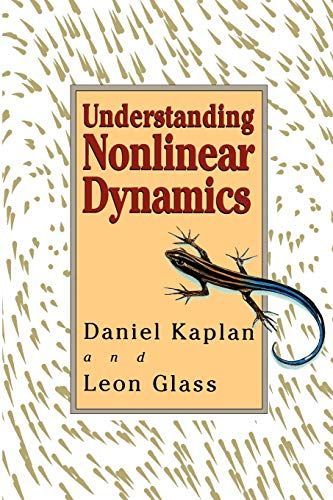
Understanding Nonlinear Dynamics
Mathematics is playing an ever more important role in the physical and biological sciences, provoking a blurring of boundaries between scientific disciplines and a resurgence of interest in the modern as well as the classical techniques of applied mathematics. This renewal of interest, both in research and teaching, has led to the establishment of the series: Texts in Applied Mathematics ( TAM). The development of new courses is a natural consequence of a high level of excitement on the research frontier as newer techniques, such as numerical and symbolic computer systems, dynamical systems, and chaos, mix with and reinforce the traditional methods of applied mathematics. Thus, the purpose of this textbook series is to meet the current and future needs of these advances and encourage the teaching of new courses. TAM will publish textbooks suitable for use in advanced undergraduate and beginning graduate courses, and will complement the Applied Mathematical Sciences (AMS) series, which will focus on advanced textbooks and research level monographs. About the Authors Daniel Kaplan specializes in the analysis of data using techniques motivated by nonlinear dynamics. His primary interest is in the interpretation of irregular physiological rhythms, but the methods he has developed have been used in geo physics, economics, marine ecology, and other fields. He joined McGill in 1991, after receiving his Ph.D from Harvard University and working at MIT. His un dergraduate studies were completed at Swarthmore College. He has worked with several instrumentation companies to develop novel types of medical monitors.